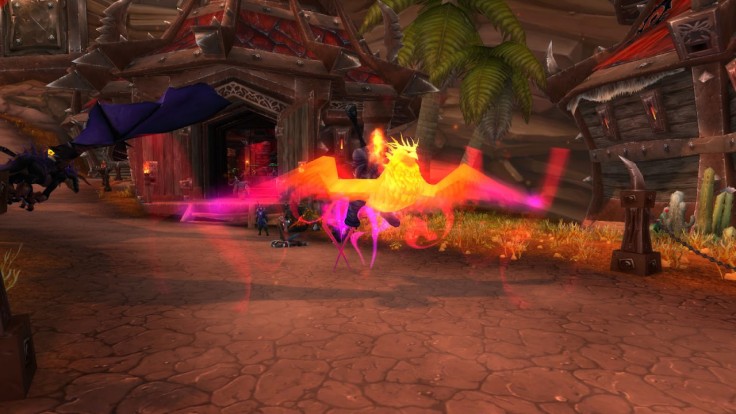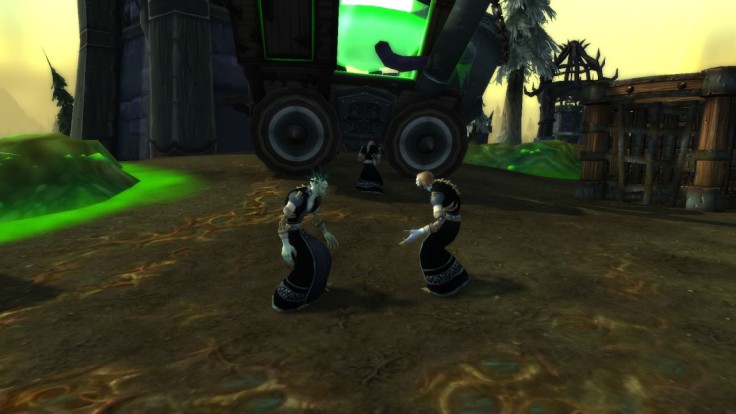
World of Warcraft, an immersive universe full of perilous quests and coveted treasures, holds a secret ingredient that hooks millions of players worldwide - the psychology of its reward systems. Part of what keeps this dynamic world engaging is the strategic use of resources, including the advantage gained through the wow boost service. This service aids players in rapidly progressing through game levels, tapping into the alluring loot system quicker. It's this interplay between rapid progression and the compelling reward system that we delve into today.
The Art of Engagement: The 'Loot' Mechanics
The loot system in WoW serves as a cornerstone to player engagement. Players team up for quests, engage in raids, and partake in Player vs Player (PvP) battles, all in pursuit of precious loot - be it gold, gear, mounts, or rare items. This constant chase is a quintessential example of the Variable Ratio Reinforcement Schedule.
In psychology, the Variable Ratio Schedule refers to the provision of rewards after an unpredictable number of responses, making it highly effective for engagement. WoW leverages this by creating an uncertainty around when and where the next high-level loot will drop, thereby maintaining player anticipation and motivation.
The Power of Immediate Gratification: Loot Drops
The loot drop is another psychological aspect of WoW's reward system. The rush of dopamine a player experiences when a desired item drops is similar to the excitement gamblers feel when they win. This immediacy of gratification feeds into our inherent preference for instant rewards, a psychological concept known as 'hyperbolic discounting'.
Through loot drops, WoW has successfully capitalized on this aspect of human psychology, ensuring that the immediate gratification hooks players and sustains their interest in the game.
Group Dynamics and Social Influence: Raiding For Loot
WoW also cleverly exploits social psychology principles within its loot system. The game encourages players to form groups or guilds to undertake challenging quests and raids. These cooperative activities create an environment where players influence and are influenced by each other, fostering a sense of community and belonging.
The shared excitement and competition for loot within these groups provide additional layers of engagement. Furthermore, WoW utilizes a 'loot council' or 'DKP' system in raids, where loot distribution is decided by a group vote or earned points. This adds a fascinating social dynamic to the gameplay, stimulating cooperation and friendly competition.
The Intricacy of Loot Trading
The loot trading system in WoW, introduced to prevent loot distribution errors during raids, is an exciting aspect of the game economy. The system allows players to exchange looted items with others who were present when the loot dropped, within a two-hour window. This feature enhances social interaction and cooperation, influencing player behavior towards teamwork and shared objectives.

Rarity and Unpredictability: The Psychology of Epic Loot
Rare and epic loot items are perhaps the most enticing aspect of the game's reward system. The scarcity and unpredictability associated with these drops can create a significant dopamine surge, further driving engagement.
This plays into the psychological concept of the scarcity principle, where humans place a higher value on resources that are perceived as rare. The thrill of acquiring a rare item after a strenuous raid taps into this innate human response, amplifying the sense of achievement and satisfaction for the player.
Final Thoughts: The Success of WoW's Reward System
World of Warcraft's ingenious use of psychological principles has led to its enduring success. The intricately designed loot system, steeped in the understanding of human psychology, keeps players engaged, encourages social interaction, and drives continuous gameplay.
Understanding the psychology behind WoW's loot system offers valuable insights into the human mind, demonstrating the power of instant gratification, social influence, unpredictability, and the allure of scarcity. Whether you are a gaming enthusiast or a student of psychology, the game provides a compelling real-world application of these concepts.
As we continue to see the evolution of WoW and similar games, it's clear that the influence of psychology on gaming design is profound and will undoubtedly continue to shape the landscape of online gaming.









